Darren Bagnall of Flat Living Insurance discusses how to nurture healthy relationships in blocks of flats through conflict resolution and mediation.
Harmonious communal living requires everyone involved to actively nurture healthy relationships. Great property managers will treat this as a priority.
Living in close proximity with others increases the likelihood of conflict between you and your neighbours- and leasehold ownership means sharing a building with multiple residents. Complicated leases can also leave room for interpretation, leading to issues with building managers or freeholders when the lease isn’t clear enough to quickly resolve disagreements.
Here we’ll be discussing some great ways to promote healthy relationships between leaseholders and building management, and leaseholders and their neighbours. We’ll also be detailing some of the alternative dispute resolution options available to help resolve any issues that do arise.
Communication
Providing leaseholders with effective means of communication is job number one. Lack of effective communication can lead to misunderstandings and disregard for rules.
You can start with the basics such as a community notice board where management can announce upcoming events or update leaseholders re any works going on in the building. This can also be used to encourage open and respectful communication between leaseholders by inviting them to highlight any concerns openly and honestly via the board.
Establishing a regular pattern of leaseholder meetings can also be a great way to stop issues piling up. Getting all interested parties together in one room to discuss and resolve any issues there and then can be hugely beneficial.
Utilising social media or specialised platform made for purpose, leaseholders can air their concerns via an online platform. They can raise concerns, ask questions and get to know each other whenever it suits them.
Building a Community with Common Rules
If leaseholders get to know each other on a social level, low-level gripes can be largely avoided. If you know your neighbours, you’re more likely to be forgiving of slight annoyances. You’re also much more likely to approach them directly, knowing you’ll get a good response.
Regular social events or activities play a key role in this, as do active campaigns to promote the idea of a building community via management’s communications.
Establishing and reminding leaseholders of common rules can also be done alongside your community building efforts. Block rules and guidelines should be displayed clearly discussed often- having a common framework helps manage expectations and prevents potential conflicts.
Building Maintenance
A badly maintained building makes for stressed, angry leaseholders. Stressed, angry people are far more likely to react badly to further stressors- such as kids running around upstairs, or music being played on a balcony all evening…
Addressing the maintenance needs of the building quickly and with great communication around costs and timescales will keep residents calm and reduce the likelihood of any dramatic conflicts between neighbours.
Demonstrating your commitment to maintaining a comfortable, pleasant living environment will often encourage leaseholders to uphold the same commitment too.
When Conflict Does Arise
Of course, even with best efforts from all parties, conflict will sometimes arise. Therefore, all residents should be made aware of the buildings conflict resolution procedure. This should include a step-by-step process that they can follow, and access to any resources they may need to do so. It should also be made anonymous if requested, so residents can flag negative behaviour without fear of retaliation.
If you work with a block that has a history of conflict or an ongoing dispute, you could consider offering mediation and conflict resolution training to residents, empowering them to address issue directly and constructively. Some blocks also designate neutral residents who can mediate conflicts as they arise- obviously these residents should be willing and fully trained. They can facilitate calm conversations and help leaseholders to come to reasonable agreements.
Alternative Dispute Resolution (ADR)
If conflicts go beyond petty disagreements and all else has failed, professional alternative dispute resolution may need to be employed to avoid lengthy and costly court battles. ADR encompasses mediation, arbitration, adjudication and Early Neutral Evaluation.
The Leasehold Advisory Service provides great information re all of these options, and points out quite correctly that “Both the courts and some professional bodies such as the Law Society, the Association of Retirement Housing Managers (ARHM), the Association of Residential Managing Agents (ARMA) and the Royal Institution of Chartered Surveyors (RICS) encourage parties to explore ADR. The Federation of Private Residents Associations (FPRA) is a long-established organisation representing long leaseholders in England and Wales and also recommends the use of ADR to resolve disputes.”
Mediation:
This is often the first port of call. It can help to avoid issues getting all the way to court, but, if not, it can at least make all the issues crystal clear and concise so that court proceedings can be smoother.
When/if mediation is offered, it should be accepted. If you do end up in court, the court will consider the efforts made to resolve things outside of court when deciding on the legal fees.
If the issue at hand is solely legal, mediation should be avoided, and instead, these matters should be reported to the police.
Arbitration:
This is one step away from entering a legal process. Often used to resolve service charge disputes (leases often state that this must be the case), the proceedings remain confidential and facilitate the collection of necessary evidence to support each party’s claims. An arbitrator’s decision is almost always final.
Adjudication:
Adjudication involved conversation with a neutral professional who will make a temporarily binding decision. The parties involved can then decide whether to go through further ADR or to take the case to court. Contractors and landlords more commonly use this option for resolving disputes, due to Housing Grants Construction and Regeneration Act.
Early Neutral Evaluation
This is very similar to adjudication, but the decision isn’t binding. Parties can simply use the independent, third party’s opinion to help them decide where to go next.
Hopefully neither you nor your residents will enter into any truly messy conflicts, but nurturing healthy relationships in a block of flats requires ongoing effort and proactive engagement from all parties.
Promote effective communication, empathy, and conflict resolution for a positive and harmonious living environment.
Flat Living Insurance provides specialist insurance policies for blocks of flats and apartments. For more information or a quote, please contact a member of the Flat Living Insurance team on 0333 577 2044.



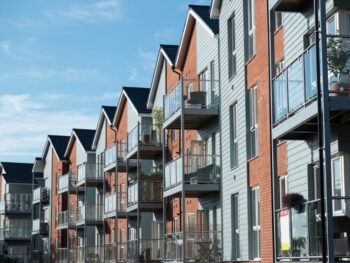

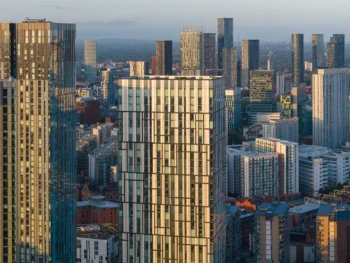
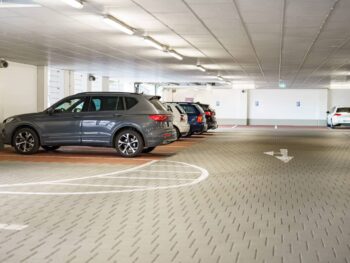
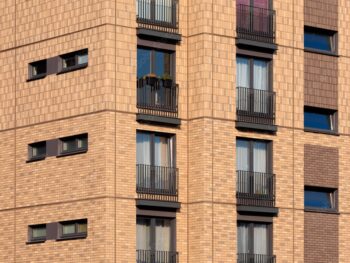
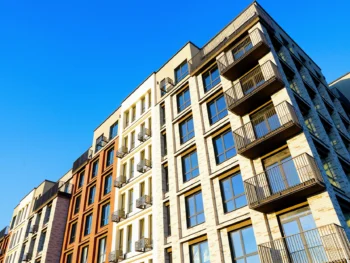


 Right To Manage – Are You a Good Fit?
Right To Manage – Are You a Good Fit?
Leave a Reply